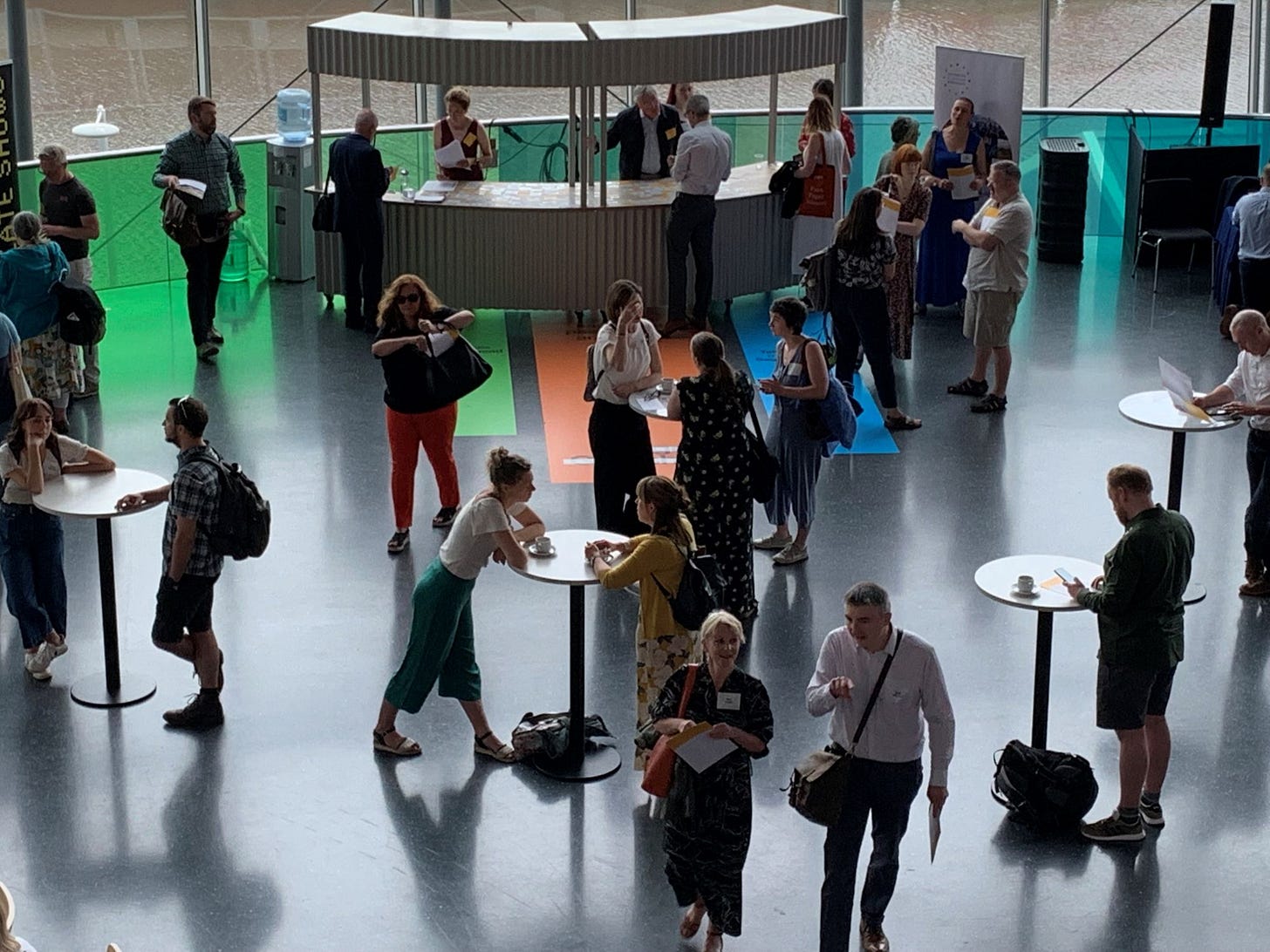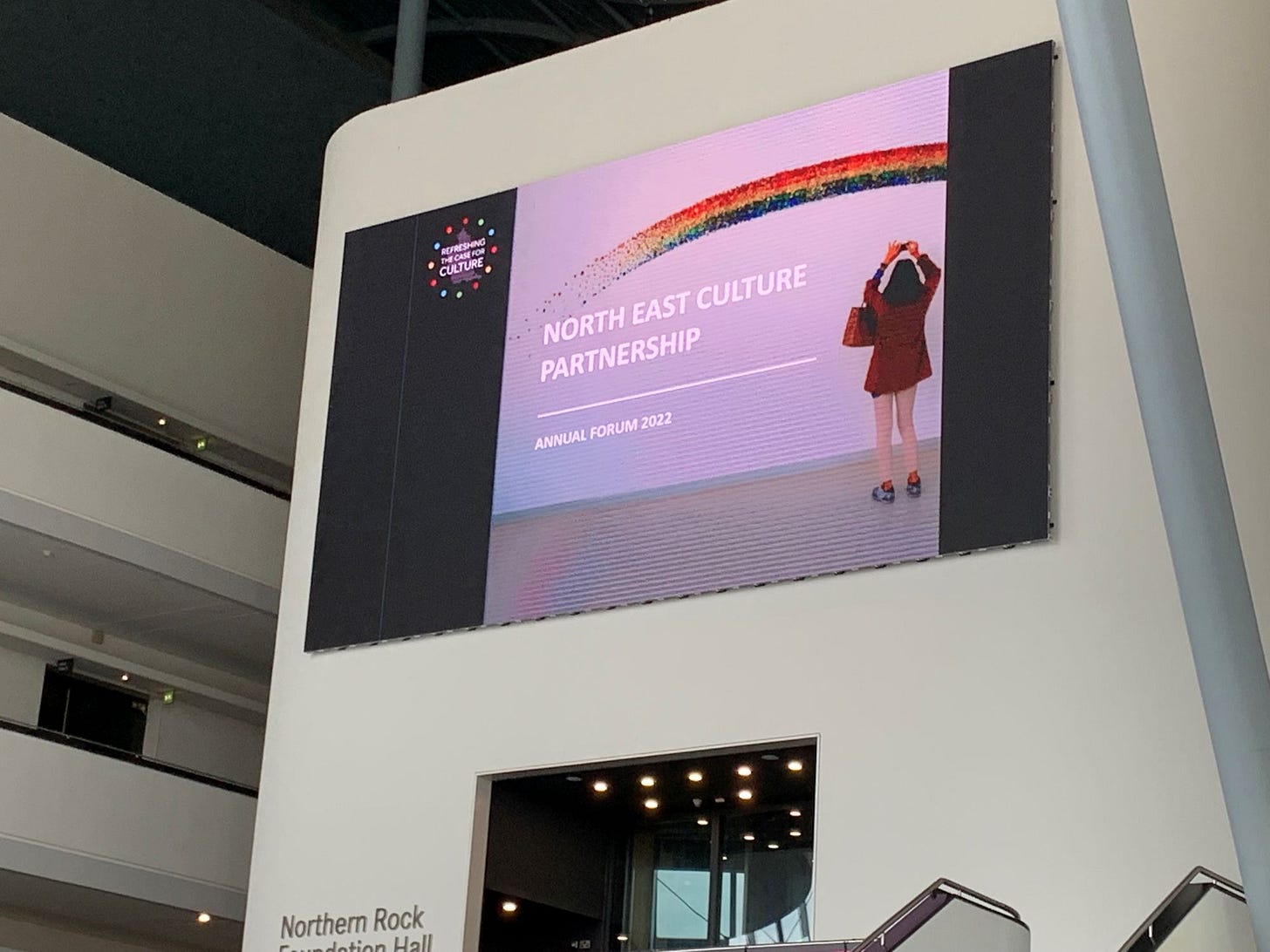Goodbye to the North East Culture Partnership
Proud of work done over 12 years, says co-chair
The North East Culture Partnership (NECP) is to be wound up on July 1.
A forum for those working in the arts and heritage and a driver of best practice, it was established in 2013 by the Association of North East Councils.
Today’s formal announcement (on Wednesday, June 4) was trailed in a briefing letter from NECP co-chair Jane Robinson, pro-vice chancellor of engagement and place at Newcastle University.
Closure comes 10 years after the upbeat launch - at Durham Castle and in the Houses of Parliament - of the NECP’s Case for Culture, formulated as a statement of ambition for the 15 years up to 2030.
“Created from within the culture sector itself, it builds on the strengths of the region’s diverse communities and brings to the fore opportunities for further investment in arts and heritage in the North East of England,” is how its (now archived) website put it.
Inspired by the Northern Arts-led Case for Capital of the 1990s, which resulted in multi-million-pound investment in the region’s cultural infrastructure (giving us Baltic, Mima, The Glasshouse, Dance City and major theatre and cinema upgrades), it was designed to keep that aspirational spirit alive.
The NECP purported to represent the region speaking as one voice, promoting universal access and the idea of spending on culture not as a cost but as a stimulus to growth.
Jane Robinson recalls in her briefing letter how it was established (and core funded) by the Association of North East Councils along with the region’s five universities, and ensured inclusivity with a board comprising councillors from every local authority plus leading figures in the arts, heritage and universities.
After its 2015 launch, the Case for Culture was cited as a model of best practice in a Government white paper on culture. It was refreshed in 2022 in the wake of the pandemic and in the light of myriad new challenges.
The region’s political make-up has changed dramatically since the NECP was formed with the 12 supporting local authorities now divided between the North East Combined Authority (seven), under Labour Mayor Kim McGuinness, and the Tees Valley Combined Authority (five) under Conservative Mayor Lord (Ben) Houchen.
The NECP had already ceased to speak for the latter.
“We are pleased that the new North East Combined Authority has established culture as one of its seven devolution priorities and we are proud that our Case for Culture work over the last 12 years has helped to sustain the local authorities’ ambitions for culture across the North East,” wrote Jane Robinson.
“We expect that the Combined Authority will make announcements in due course for new strategic cultural provision which includes sport, tourism and creative industries.”
But with any sort of change come concerns.
The North East Combined Authority has a series of advisory boards including one for culture, creative, tourism and sport.
Many leading figures in the North East arts and heritage sectors sit on this particular board but its remit is huge and its constituent parts open to the broadest definition.
With the NECP, the arts and heritage sectors did at least have a region-wide voice to amplify their interests.
And while the big institutions – Baltic, The Glasshouse, North East Museums – might be acknowledged as representative of the North East’s traditionally vibrant arts and heritage scene, what of all the smaller players, the freelancers and tiny companies that so often punch above their weight and on whom the big players rely?
Then there’s the analysis done or reported on by the NECP.
This year it has initiated surveys on international collaborations and the state of repair of our cultural buildings. Little over a week ago it hosted an online session about the health benefits of participating in cultural activity.
It has also recently looked at the latest figures released by the Department for Culture, Media and Sport which show the creative industries were worth over £1.6 billion to the North East in 2022.
That was an increase of more than 64% since 2015, the largest percentage increase in the UK and accounting for 3% of the region’s GVA (that’s gross value added, a measure of economic performance).
The next cabinet meeting of the North East Combined Authority is scheduled for June 10 at The Story, the new cultural attraction in County Durham where Reform UK have recently taken control of the council with Andrew Husband replacing Liberal Democrat Amanda Hopgood as leader.
Councillor Hopgood chaired the culture, creative, tourism and sport advisory board on the fledgling North East Combined Authority.
As the complexion of the political landscape changes, will different priorities now come into play? What might it all mean for the arts?
The members of the new-look North East Combined Authority cabinet and their portfolios will be revealed at that June 10 meeting.
Watch this space.
In the meantime, you can still find out about the work done by the NECP on its now archived website.




